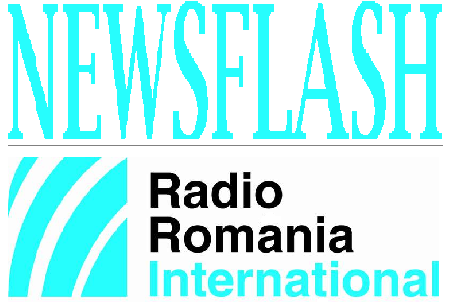March 29, 2014 UPDATE
A roundup of domestic and international news

România Internațional, 29.03.2014, 19:25
The day that Romania joined the North-Atlantic Alliance became a landmark in our history, as it marked this country’s reaching a new level of stability and security, reads the message conveyed by the Romanian Prime Minister Victor Ponta on the celebration of 10 years of NATO membership. Other Romanian officials, such as Senate Speaker Calin Popescu Tariceanu, Deputy Prime Minister Gabriel Oprea and the President of the opposition National Liberal Party, Crin Antonescu, have too stressed the importance of the status of NATO member for Romania’s security. We recall that on March 29th, 2004, Bucharest submitted the ratification documentation for accession to the US Department of State, and on April 2nd Romania got the official status of NATO member state.
On Sunday, the Romanian Foreign Minister Titus Corlatean will hold talks in Bucharest with his Canadian counterpart John Baird, on topics such as bilateral relations, cooperation within NATO and the current European and international issues. The two will discuss the latest developments in the area neighboring Romania and the security challenges triggered by these developments in the Black Sea area. Minister Corlatean and his Canadian counterpart will travel to Chisinau on Monday. According to the Romanian Foreign Ministry, the Canadian official’s visit to Bucharest is proof of the fact that Canada appreciates Romania’s active role in maintaining peace and security in the region, as well as a display of that country’s support for the European prospects of the countries members of the Eastern Partnership, including the Republic of Moldova.
Leaders of the Tartar community in Crimea stand for the autonomy of the Muslim community after the annexation by Russia of the peninsula in southern Ukraine. The 300 thousand Tartars in Crimea, who account for 12% of the population, are afraid of Moscow, as after WWII, Soviet dictator Iosif Stalin ordered their mass deportation to Central Asia, and half of those deported died on the road. Survivors were only allowed to return to Crimea in late 1980s. In another move, Russian Foreign Minister Serghei Lavrov has stated that Russian troops have no intention of crossing the border with Ukraine and, since Russia’s and the western countries’ stand regarding the situation in Ukraine are getting similar, a common initiative is possible. Lavrov is to meet the US Secretary of State John Kerry, for talks on solutions to the crisis in Ukraine.
The European Commission has demanded explanations regarding the amendments adopted by Bulgarian authorities, under which the South Stream pipeline would be excluded from under the jurisdiction of European legislation, Sofia’s public radio station has announced. Recently, the Energy Committee of the Bulgarian Parliament has adopted a string of amendments under which the South Stream gas pipeline will be treated as interconnector between the Bulgarian and the Russian gas systems. Thus the pipeline would get out of the jurisdiction of the third EU energy package and other providers will no longer have access to the gas pipeline. In the autumn of 2013, the European Commissioned noticed that the agreements signed between Russia and several EU members, among which Bulgaria, regarding the building of the pipeline, were in violation of the European legislation, as they did not allow other interested providers, other than Gazprom, to have access to the pipeline meant to bring Russian gas to the centre and south of Europe, without crossing Ukraine.
Starting Sunday, Romanian Minister Delegate for Romanians across the world, Bogdan Stanoevici is paying a visit to Spain. He will meet representatives of Romanian associations as well as local administration representatives from towns and cities with big Romanian communities. Also, Stanoevici will represent the Romanian government at the funderals held in memory of the former Spanish Prime Minister Adolfo Suarez, the head of the first democratic government after the fall of the totalitarian regime of general Francisco Franco.
A project that best illustrates Romania’s capacity for research and innovation as well as well the positive effect of getting EU funding is the Laser in Magurele, near Bucharest, said on Saturday the Minister for European Funds, Eugen Teodorovici. Together with the Minister Delegate for Higher Education Mihnea Costoiu, he met with the Croatian Deputy Prime Minsiter Branko Grcici, who is also Minister of Regional Development and European Funds. The three officials visited the platform in Magurele, where the most powerful laser research centre in the world is being built, from cohesion and structural funds. The research conducted at Magurele will impact fields such as health-care, nuclear waste management, economy and the pharmaceutical industry.




























